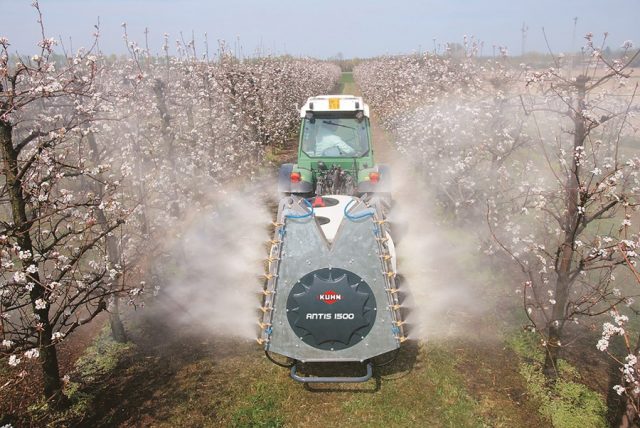BASF innovates in grapes
1st July 2019
BASF is well known in the industry for developing cost-effective solutions to help growers of smaller acreage crops such as fruit and vegetables.
- A collection of effective fungicides with different modes of action on offer
- Controlling all damaging diseases in vines
- Leading to high yielding, high quality grapes
BASF is well known in the industry for developing cost-effective solutions to help growers of smaller acreage crops such as fruit and vegetables. They are now able to provide some of their key and new actives to the small but expanding group of grape growers in the UK.
BASF offers UK grape growers a range of highly effective fungicides including Kumulus (sulphur) for powdery mildew control and as EAMU’s Percos (ametoctradin and dimethomorph) for downy mildew control, Stroby WG (kresoxim-methyl) for black rot, Phomopsis and powdery mildew control, Sercadis (fluaxapyrad) for powdery mildew and Regalis Plus (prohexadione) for Botrytis.
“The UK wine industry is growing exponentially and is a great success, winning international prices for its sparkling and still wines. This year a milestone of 3 million vines were planted, equating to an additional 690 hectares of vineyards and a 24% increase. The total area of grapevines grown in the UK stands at 3578 hectares and this has quadrupled since 2000. There are now over 522 commercial vineyards and we produced a record 15.6 million bottles of wine last year, according to the industry group WineGB,” says Matthew Goodson of BASF.
“Growers need the tools to be able to grow a high yielding, high quality crop. We have got most of the key diseases in grapes covered with our products and we are offering a number of different modes of action that can be used in a strategic way as part of a resistance strategy. We are continuing the process to get more recommendations for more products in the future. BASF is seen one of the leading manufacturers for top fruit and vegetables and we want to be seen in the same light by our grape growers.”
Matthew reminds growers that for any EAMU, growers should obtain a copy of the notice of approval via the Chemicals Regulation Division (CRD) web site, ADAS offices or NFU. In the EAMU notice of approval, CRD point out that liability lies with the user and growers are advised to test a small area of crop prior to commercial use.

